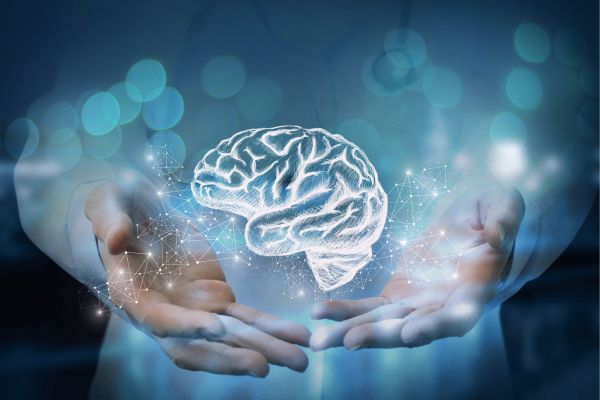
From the Desk of Carolyn Dean MD ND
Are you one of millions of people around the world taking proton pump inhibitor medication, contributing to the billions of dollars that drug companies enjoy annually?
PPIs are one of the most widely prescribed classes of drugs globally, but you might not even realize you’ve been taking a PPI because your doctor, or your friend who suggested you try them, never explained what a proton pump inhibitor is, or how it works. Many assume it’s just a stronger, longer-lasting antacid. It isn’t.
If your doctor suggested that it might be useful for you to try a PPI (proton pump inhibitor) like Prevacid or Prilosec, available over the counter, for your heartburn and acid regurgitation, instead of chewing through bottles of Tums, did you have a discussion about the risks? Were you told that people taking PPIs were 16% to 20% more likely to experience a heart attack? No, because they don’t study the research about these seemingly innocuous yet very harmful drugs.
Did your doctor tell you to only take the drug for a couple of weeks, maximum? Or were you told to try it and if it didn’t work well enough, they’d give you a prescription for a stronger (more dangerous) medication? As simple as that, millions of people worldwide are locked into taking drugs that are not meant to be taken indefinitely.
What Dr. Google or an MD might say about proton pump inhibitor (PPI) meds:
Unlike antacids, PPIs don’t provide rapid relief for heartburn. They work overtime to reduce acid production and supposedly heal the damage in the gastrointestinal system and your esophagus caused by excessive acid. They could take 3 or 4 days … or 4 weeks to start working to reduce stomach acid. It turns out that the FDA recommends PPIs only be used for 4 to 8 weeks. However, I know that people buy boxes of them in bulk.
When people try to stop taking PPIs, their symptoms rebound fiercely almost immediately which leads people to self-prescribe these over-the-counter meds almost indefinitely. This leads to near-permanent dependence. And I’ve never heard from patients or clients that their medical doctor ever suggested diet and lifestyle changes to help normalize their stomach acid behavior instead, PPIs seem to be the default medical solution.
What PPIs are for
PPIs are used to treat conditions that result from excessive stomach acid. In conditions like GERD (gastroesophageal reflux disease) stomach acid flows backwards, into the esophagus, causing heartburn, or acid reflux. The lining of the esophagus gets burned because it’s not meant to accommodate stomach acid.
So, according to conventional medical “logic”, if stomach acid is the problem (it’s not) then here’s a drug to stop stomach acid production.
What I say about proton pump inhibitors
You wouldn’t have stomach acid if you didn’t need stomach acid!
Let’s face it, all bodily functions and secretions like stomach acid play a vital role in your finely tuned system. Drugs, like PPIs interfere with that system by shutting down stomach acid production. Yes, PPIs stop stomach acid production, which can set off a cascade of trouble, including heart disease.
Why on earth would drug companies think it’s a good idea to stop the production of stomach acid? Do they pretend that people will just use if for a couple of weeks until they symptoms subside. But people are using this drug indefinitely and without medical supervision because now it’s widely available without prescription.
As I discuss in my book, The Magnesium Miracle, the roiling and burning in the gut from sugary junk food and greasy fast food, and super-sized meals is being inappropriately blamed on too much stomach acid. In many cases, heartburn is due to sugar fermentation in the stomach and also, there can be a backflow of pancreatic enzymes from the small intestine. All these causes are misdiagnosed as excess acid.
When you keep eating the same kind of unhealthy foods but take a drug to stop your stomach from producing the stomach acid necessary to digest that food you block your body’s ability to digest properly — while the root problem remains untouched.
Stomach acid is required for the proper digestion of protein and for chemically changing minerals into an absorbable form. Another crucial job of stomach acid is to kill unwanted organisms (parasites, bacteria, yeast, fungi and viruses) that find their way into our food and water.
Undigested food molecules that don’t have the benefit of stomach acid processing become fodder for yeast and intestinal bacteria leading to leaky gut and an imbalance of bacteria in your gut. This inevitably results in gas, bloating and constipation.
Note: Given that stomach acid is necessary to kill unwanted organisms, parasites and bacteria, I can’t help but wonder if one of the long-term side effects of PPIs, according to Dr. Google, is an increased risk of infections like C. diff (Clostridioides difficile).
How things are supposed to work
The esophagus, a tube connecting the throat to the stomach, is painfully affected by acid reflux when this muscular pathway fails to push food and fluid forward and instead allows it to reverse back from the stomach. When a muscular mechanism isn’t working properly, it could be because the esophagus is in spasm. And we all know that any kind of muscular spasms are largely due to magnesium deficiency.
Did it start with magnesium deficiency?
If you have magnesium deficiency (and most of us do) and tend to eat a diet that’s rich in sugar and fat, your heartburn, (or GERD/acid reflux) could have easily come about after a few difficult to digest meals met with an esophagus that was in spasm, sending acid backwards from your stomach.
And because stomach acid is essential for magnesium absorption if you’ve been taking PPIs, you have no stomach acid and if you have no stomach acid, you have severely depleted your ability to absorb magnesium, even if you’re taking an appropriate form of this essential mineral. The result: a vicious cycle of deficiency and worsening symptoms.
You’re not going to believe this but PPIs have a black box warning on them for causing magnesium deficiency. I don’t know if it’s related but they also can cause lung infections.
People on PPIs are more likely to have heart attacks
I’ll mention it again because it’s so important, a 2015 study reported that adults taking PPIs are 16-21% more likely to experience a heart attack. The researchers say they don’t know why this is the case, they’re just reporting the stats. To me, the chronic use of PPIs is causing magnesium deficiency which is causing heart attacks. Just so you’re aware, your MD is never going make this link, despite the research.
Bottom line: Stomach acid isn’t the enemy. It’s essential for digestion, nutrient absorption, and protection against pathogens. PPIs, especially when used long-term, interfere with these critical functions and leave people sicker, not healthier. If you struggle with heartburn, acid reflux or GERD, consider looking beyond the “quick fix” and addressing the root causes — starting with your diet, your magnesium levels, and how your digestive system is really meant to work.
What you can do
Magnesium.
As mentioned above, magnesium deficiency can cause muscle spasms and taking magnesium can be very helpful to secure the esophageal sphincter. Magnesium is also a necessary factor in the production of gastric acid. The best form to take is a picometer liquid magnesium.
Herbs:
DGL licorice: DGL can be as effective as powerful prescription medications for heartburn and GERD. Chew one or two wafers twenty minutes before a meal. DGL works by strengthening the stomach mucosal lining and enhancing production of mucin, which protects the stomach against gastric acid. DGL stands for de-glycyrrhizinated licorice, which removes the potential of glycyrrhizin causing high blood pressure.
Apple cider vinegar: Mix 1 tsp in 4 ounces of water and sip throughout a meal to aid digestion.
Ginger, Catnip, Fennel, and Slippery elm bark: Make a tea or take one to two capsules before meals of any of these herbs either alone or in combination. I highly recommend organic herbs because otherwise you have no idea of the source.
As for your diet, avoid greasy, sugary, spicy foods and eat much smaller meals and stop eating at least 3 hours before you lie down so a full stomach doesn’t try to make its way back up your esophagus!
Carolyn Dean MD ND
The Doctor of the Future



